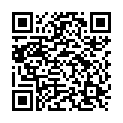|
|
|
| Module code: PIB-GD |
|
|
2V+2S (4 hours per week) |
|
5 |
| Semester: 4, 5, or 6 |
| Mandatory course: no |
Language of instruction:
German |
Assessment:
Project (E-portfolio) with presentation (possible as group work)
[updated 21.12.2023]
|
KIB-GD (P241-0411) Computer Science and Communication Systems, Bachelor, ASPO 01.10.2021
, optional course, non-technical
KIB-GD (P241-0411) Computer Science and Communication Systems, Bachelor, ASPO 01.10.2022
, optional course, non-technical
MAB_19_4.2.1.31 (P241-0411) Mechanical and Process Engineering, Bachelor, ASPO 01.10.2019
, optional course, general subject
MST2.GDB (P241-0411) Mechatronics and Sensor Technology, Bachelor, ASPO 01.10.2020
, optional course
PIB-GD (P241-0411) Applied Informatics, Bachelor, ASPO 01.10.2022
, optional course, not informatics specific
PIB-GD (P241-0411) Applied Informatics, Bachelor, SO 01.10.2026
, optional course, not informatics specific
|
60 class hours (= 45 clock hours) over a 15-week period.
The total student study time is 150 hours (equivalent to 5 ECTS credits).
There are therefore 105 hours available for class preparation and follow-up work and exam preparation.
|
Recommended prerequisites (modules):
None.
|
Recommended as prerequisite for:
|
Module coordinator:
Sandra Wiegand, M.A. |
Lecturer: Sandra Wiegand, M.A.
[updated 13.10.2021]
|
Learning outcomes:
After successfully completing this module, students will understand how gender and diversity influence how personal everyday life, society and science are structured. They will understand the relevance of gender and diversity issues for their studies, future profession, society and their social environment, as well as theories and concepts of diversity, difference and intersectionality. They will be familiar with the different diversity factors (age, ethnic origin & nationality, gender & gender identity, physical & mental abilities, religion & belief, sexual orientation and social origin etc.), as well as their interaction and the associated dominance structures and inequality relations. Students will be able to identify and classify current social issues and the problems resulting from them. They will become familiar with ways of dealing with problems and their possible solutions.
[updated 22.05.2023]
|
Module content:
Cross-faculty topics on diversity and equal opportunities in academic and professional life.
- Managing diversity in organizations
- Intersectionality in the context of gender and diversity
- The legal framework of gender and diversity
- The responsibility of design in society based on the example of gender & diversity
- Gender-sensitive construction
Dealing with sexual harassment and discrimination
Diversity as a factor - Inclusion - Opportunities and Challenges
Gender identity and sexual orientation
"Social origin" as a diversity dimension, based on the example of students from non-academic families
Reconciling work and family - parenthood as a diversity dimension
Diversity and economic success - A contradiction?
Women at the helm - "How did I end up here?" - Occupational roles and stereotypes using the example of female pilots
Gender equality in art and culture - How can we counteract the structural inequality suffered by women?
Effects of study and career choices from a gender perspective
[updated 22.05.2023]
|
Recommended or required reading:
Will be announced in the course.
[updated 22.05.2023]
|
Module offered in:
SS 2022
|


